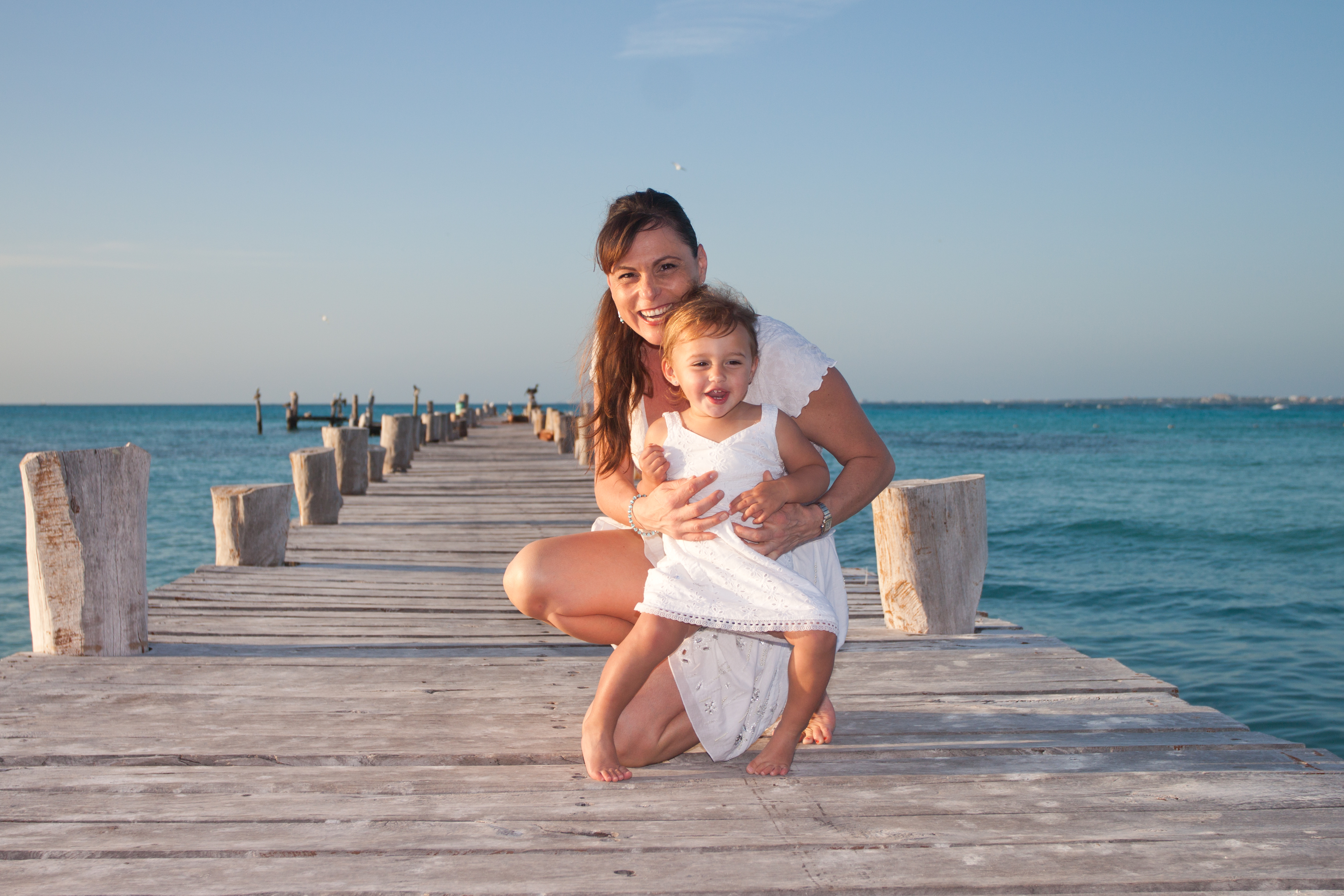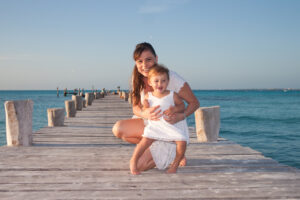As a single mom and travel writer, being prepared for emergencies while traveling is paramount. But because of all the negative media attention overseas lately, it made me think of all the other things that could go wrong when I travel with my daughter. So, I contacted to some of the country’s top crisis and security experts and found out what I need case of an emergency–be it a public attack, hotel fire, bodily injuries, hurricane, or other crisis situations. So, I’d thought I’d share it with you.
SAFETY STARTS BEFORE YOU DEPART
Everyone I spoke to said that pre-trip preparation is a must. I know that when I travel with my daughter, I pack medications for her like children’s strength medicines, along with a first aid kit with all the basics. Because of the many times I have gotten food poisoning, I make sure that I pack medications for me as well. When you’re sick in a foreign place, the last thing you want to do is search for a pharmacy–especially when you have your child with you. For parents of older children, I found this website ready.gov where you can download fun, illustrated emergency plans for your children.
Tom Coyle is a retired US Naval Criminal Investigative Service (NCIS) Special Agent and spent 8 years overseas. He conducted counterterrorism/national security investigations on behalf of the US Navy and Marine Corps and later taught at the Dept. of Defense Counterintelligence Training Academy. He recommends:
Clothes and Accessories:
- Pack clothes that fit in with the culture you are visiting. Do the same with your children. Keep the Disneyland sweatshirts at home, along with any flashy clothes or shoes.
- You might have to run fast, so make sure you have comfortable, stable shoe for both you and your children.
- Bring a bag that is connected to your body. Have your children store important information on their bodies, hidden. (Check out The Rack Trap, I have a few and they work great.)
Documents:
- Have copies of your passport and all your children’s passports. All family members should have copies on them, along with the information of where you are staying.
- Register with STEP. Smart Traveler Enrollment Program. The Smart Traveler Enrollment Program (STEP) is a free service to allow U.S. citizens and nationals traveling abroad to enroll their trip with the nearest U.S. Embassy or Consulate.
Family:
- Discuss with your children the culture and history of where you are traveling.
- Take a look at maps so everyone will have an understanding of the layout of the city.
- Have all family members learn key phrases or write them down and travel with the phrases.
- Set rules and protocols before departure like: “Don’t open the door,” “Keep your phone on,” “If we get lost, we meet at the last place we saw each other.”
E. Drew Britcher, a founding partner at Britcher Leone, LLC is a lawyer who specializes in cases that involved travel complications, emergencies, and unfortunate incidents. His motto: “Plan for the worst and enjoy the best!” Mr. Britcher’s advice includes:
Insurance:
- Check your medical insurance before you go. If you don’t feel like you have sufficient coverage, then research your options.
- If you need more medical insurance, invest in third-party insurance.
- You can get just airfare insurance that will rebook your flight if something unfortunate happens or you can invest in third party medical and airlift insurance.
- Look for the providers that will get you home regardless of your location and accident/incident.
Emergency Money:
- Make sure you have a high-credit emergency credit card you can use for medial or emergencies only.
- In Europe, they are using credit cards with chips; make sure your credit card will work at your destination.
- Have your credit card companies numbers pre-programed in your phone, just in case you lose your wallet or it gets stolen.
- Don’t carry all your cards with you. Hide one with cash at where you’re staying.
Medication:
- If you are on a sustained medication. Bring extra. You don’t want to run out in an emergency. Especially if you don’t know when you will be able to get home.
- Know what your medication is in the country you are visiting just in case you need to get more. But, plan on taking enough.
Global Rescue is a travel risk and crisis management firm that provides medical, security, intelligence, and crisis response services. Dan Richards, the founder and CEO, recommends:
Supplies:
- When traveling with children, pack extras in your carry on and in your luggage: extra formula, diapers, wipes, snacks, etc. If planes are delayed and you get stuck somewhere in a hurricane or transportation strike, you don’t want to run out of the essentials.
Communication and Technology:
- Buy international cell coverage on your phone so it will work regardless of where you are traveling. It is worth the money.
- Pre-program your hotel/location, emergency numbers of local authorizes, police, embassy, etc. and make sure that you enter the correct country code.
- Make sure you bring the correct country outlet chargers and keep your phones charged at all time.
- Bring extra external charged battery packs for your phones.
Rory Byrne is the CEO & Co-Founder of Security First. It is an app used by travelers, journalists, human rights activists around the globe. It’s free and you can download it from the Google Play Store directly or click here to learn more. He shares:
Safe Havens:
- Know where the closest embassy is to where you’re staying and know how to get there.
- Determine “Safe Havens” in the areas you are visiting. They can include fire stations, hospitals, schools, and police stations.
- Print out maps of these locations and give copies to everyone in the family.
Cash:
- Get local currency before you go and make sure that each of your family members has some cash hidden on them.
- Make sure that you understand the exchange rate.
So, now you’re on your dream vacation, and something bad happens. What do you do?
When you arrive at your hotel/location, review the emergency exits and stairwells. What is the best way to get your family out in a hurry with the least amount of exposure? Make sure you know where your passports will be kept. Many hotels require that you surrender your passport when you check in, if so, make sure your family has copies. Keep a grab bag by the door filled with supplies, in case you need to leave in a hurry. Keep it small and something you can throw on your back. You’ll need your hands free to hold your children’s hands or carry them.
Tom Coyle says, “First and foremost, Stay calm and avoid danger. Go the other way, but be careful and don’t cross busy streets since you will be preoccupied trying to get to safety and don’t worry where your hotel is. Get out of the chaos. Hopefully your children are with you, so keep as calm as possible, the last thing you want is a scared and hysterical child. Find out what is actually happening.” If they are not with you, rely on the plan you created before your trip: “Immediately call/text your family and go to your emergency meeting place.”
Dan Richards adds, “Develop a sense of what’s going on. As soon as possible, go to low-bandwidth news websites on your phone. If that doesn’t work, text someone who’s not traveling with you. They might know what’s going on from a news source.” Mr. Richards says, “You need to decide if you are going to stay or if you are going to move. Is the place you’re currently at, like a bookstore or hotel, safe? You can’t make that decision unless you have situational awareness. So, find out what’s going on ASAP.” He continues, “If you plan on staying, make sure that you have all you need to stay put for a while. Do you have enough food, water, fuel and can you charge your phone? If traveling with children, do you have sufficient diapers, formula, snacks, and wipes? If so, then stay; if you have to leave, where are you going and how are you getting there? Do you have to get back to your hotel? Can you go directly to the embassy? If you get to the embassy, will there be sufficient personnel and space to help all of those seeking assistance (often times there isn’t)? Do you need to get to the airport? The faster you respond, the better your chances are to be the first helped.”
Once safely at the designated location, rely on the local official to let you know the next steps.
When you have a plan and are prepared, you can have a wonderful time with your children knowing that you’ve got it covered! Plus, the best thing we can give to our children is an inspiring, love-centric view of this amazing world we live it. We can change the world, one trip and one child at a time!
Have a wonderful holiday season and give your loved ones a big hug.
(If you have more advice, please share!)




